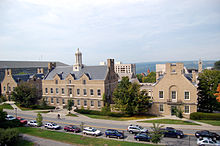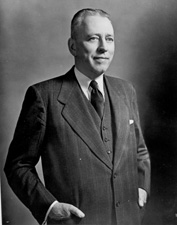Industrial relations or employment relations is the multidisciplinary academic field that studies the employment relationship; that is, the complex interrelations between employers and employees, labor/trade unions, employer organizations and the state.
Human resource management is the strategic approach to the effective and efficient management of people in a company or organization such that they help their business gain a competitive advantage. It is designed to maximize employee performance in service of an employer's strategic objectives. Human resource management is primarily concerned with the management of people within organizations, focusing on policies and systems. HR departments are responsible for overseeing employee-benefits design, employee recruitment, training and development, performance appraisal, and reward management, such as managing pay and employee-benefits systems. HR also concerns itself with organizational change and industrial relations, or the balancing of organizational practices with requirements arising from collective bargaining and governmental laws.
The Samuel Curtis Johnson Graduate School of Management is the graduate business school in the SC Johnson College of Business at Cornell University, a private Ivy League university located in Ithaca, New York. It was founded in 1946 and renamed in 1984 after Samuel Curtis Johnson, founder of S.C. Johnson & Son, following his family's $20 million endowment gift to the school in his honor—at the time, the largest gift to any business school in the world.
Kate Bronfenbrenner is the Director of Labor Education Research at the Cornell University School of Industrial and Labor Relations. She is a leading authority on successful strategies in labor union organizing, and on the effects of outsourcing and offshoring on workers and worker rights.
Master of Professional Studies is a type of master's degree concentrated in an applied field of study. MPS degrees are often interdisciplinary. While Master of Arts and Master of Science degree programs tend to focus on theory and research, Master of Professional Studies degrees tend to emphasize practical skills designed for current and aspiring professionals, including post-bachelor and post-graduate students, and often require some amount of fieldwork or internship to complement classroom learning.
Harry Charles Katz is an American university professor and academic administrator. He is the Jack Sheinkman Professor of Collective Bargaining at the Cornell University School of Industrial and Labor Relations. From November 14, 2014, to July 31, 2015, he served as the interim Provost of Cornell University.
The Martin P. Catherwood Library, commonly known as the Catherwood Library or simply the ILR Library, serves the New York State School of Industrial and Labor Relations at Cornell University. One of over a dozen libraries within the Cornell University Library system, the Catherwood Library is considered the most comprehensive resource of its kind in North America. The Catherwood Library's stated mission is to serve as a comprehensive information center in support of the research, instruction, and service commitments of the Industrial and Labor Relations School and Cornell community. The Catherwood Library is an official Depository Library of the International Labour Organization (ILO), one of only two in the country to be so designated; the other is the Library of Congress.
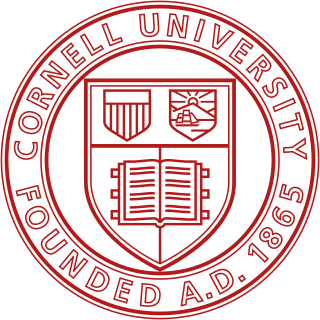
Cornell University is a private Ivy League and statutory land-grant research university, based in Ithaca, New York. Founded in 1865 by Ezra Cornell and Andrew Dickson White, Cornell was founded with the intention to teach and make contributions in all fields of knowledge — from the classics to the sciences, and from the theoretical to the applied. These ideals, unconventional for the time, are captured in Cornell's founding principle, a popular 1868 quotation from founder Ezra Cornell: "I would found an institution where any person can find instruction in any study."
A chief human resources officer (CHRO) or chief people officer (CPO) is a corporate officer who oversees all aspects of human resource management and industrial relations policies, practices and operations for an organization. Similar job titles include: chief people officer, chief personnel officer, executive vice president of human resources and senior vice president of human resources. Roles and responsibilities of a typical CHRO can be categorized as follows: workforce strategist, organizational and performance conductor, HR service delivery owner, compliance and governance regulator, and coach and adviser to the senior leadership team and the board of directors. CHROs may also be involved in board member selection and orientation, executive compensation, and succession planning. In addition, functions such as communications, facilities, public relations and related areas may fall within the scope of the CHRO role. Increasingly, CHROs report directly to chief executive officers and are members of the most senior-level committees of a company.
Morris M. Kleiner is an American academic. Kleiner received his M.A. in Labor and Industrial Relations, and Ph.D. in economics from the University of Illinois and his undergraduate degree in economics from Bradley University. He is a professor and the inaugural AFL-CIO chair in labor policy at the Hubert H. Humphrey School of Public Affairs at the University of Minnesota, Minneapolis. From 1974 to 1987 he was an assistant and later full professor at the School of Business at the University of Kansas.
Karen E. Boroff is an educator, researcher, and administrator in American higher education. She is the former dean of Seton Hall University’s Stillman School of Business. She is noted for her focus on integrity, innovation and excellence in leading the School to increased prominence within the State of New Jersey and nationally.
James A. Gross is an American educator and historian who teaches United States labor law and labor history at the Cornell University School of Industrial and Labor Relations. He is the author of a highly regarded three-volume history of the National Labor Relations Board (NLRB) and is considered the leading historian of the NLRB.
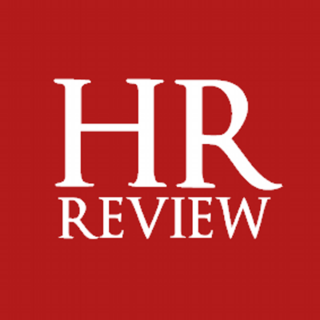
The Cornell HR Review (CHRR) was an online journal of human resource management articles published independently by graduate students at Cornell University. The publication ran from 2009 to 2019.

Ronald Gordon Ehrenberg is an American economist. He has primarily worked in the field of labor economics including the economics of higher education. Currently, he is Irving M. Ives Professor of Industrial and Labor Relations and Economics at Cornell University. He is also the founder-director of the Cornell Higher Education Research Institute (CHERI).
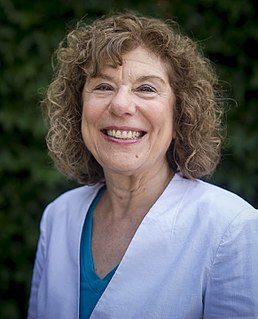
Francine Dee Blau is an American economist and professor of economics as well as Industrial and Labor Relations at Cornell University. In 2010, Blau was the first woman to receive the IZA Prize in Labor Economics for her "seminal contributions to the economic analysis of labor market inequality." She was awarded the 2017 Jacob Mincer Award by the Society of Labor Economists in recognition of lifetime of contributions to the field of labor economics.
Louis Roland Hyman is an American writer and economic historian. He is the Maurice and Hinda Neufeld Founders Professor in Industrial and Labor Relations at Cornell University's School of Industrial & Labor Relations.

Dr. Ramaswami Balasubramaniam is a development scholar, author, public policy advocate, leadership trainer known for his pioneering development work with rural and tribal people in Saragur and Heggadadevana kote Taluks of Mysuru in Karnataka, India. He founded Swami Vivekananda Youth Movement (SVYM), a development organization based in Saragur when he was 19. He is also the Founder and Chairman of the Grassroots Research And Advocacy Movement (GRAAM), a public policy think tank based out of Mysuru. After spending 26 years in development work among rural and tribal people, he pursued academic degrees in leadership, organisational development and public policy. He was the Frank T Rhodes professor at Cornell University between 2012 to 2014, and continues to hold academic positions in Cornell and other universities. His books 'Voices from the Grassroots' and 'I, the citizen' are compilation of narratives and reflections of a development expert and are now globally acclaimed. His book I, the citizen was released in 2015 by the Prime Minister's office.
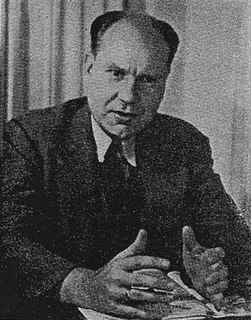
Edward Wight Bakke was an American sociology and economics professor at Yale University who achieved prominence in the field of industrial relations. He was a Sterling Professor, Yale's highest level of academic rank, and served as director of the Yale Labor and Management Center from its founding in 1945 until its dissolution in the late 1950s. The author, co-author, or co-editor of thirteen books, Bakke made major contributions to the study of unemployment and organizational theory.
Lawrence M. Kahn is the Braunstein Family Professor and Professor of Economics at the Cornell University School of Industrial and Labor Relations.
Jean Trepp McKelvey was an American economist specialising in arbitration and industrial relations. McKelvey was an esteemed tenure professor at Sarah Lawrence College (1932–1945) and Cornell University (1946–1976) where at the latter she was a founding faculty member for the School of Industrial and Labor Relations, developing the curriculum and teaching five courses including arbitration, labor law and labor practices. Coined the "mother of arbitration", in 1947 McKelvey was the first woman admitted to the National Academy of Arbitrators, in 1970 became its first woman president and established an arbitration training program for women and minorities. In addition to her successful published research career, McKelvey served on the New York State Board of Mediation (1955–1966) and Federal Services Impasses Panel (1979–1990) and received numerous accolades including the Federal Mediation and Conciliation Service's Special Award for Distinguished Service in Labor Management Relations (1973) and Arbitrator of the Year Award from the American Arbitration Association (1983).
